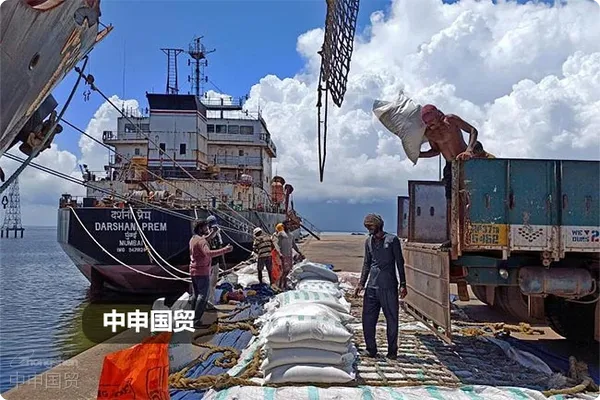- Shanghai Zhongshen International Trade Co., Ltd. - Two decades of trade agency expertise.
- Service Hotline: 139 1787 2118
From the export ban on rare metals, to the sugar supply, and then to the import restrictions on personal computers and military drones, a series of major policy adjustments by the Indian government recently are changing the domestic and international market landscape. This is not only Indias strategic move towards self - sufficiency but may also have a profound impact on the global supply chain. Exploring the strategic intentions and potential impacts behind this series of policies is like piecing together a huge political and economic map, and each piece of the puzzle may determine the future direction.

I. Strategic Significance and Impact of Indias Rare Metal Export Ban
Strategic Background
The Indian government is considering banning the export of rare metals such as lithium, beryllium, niobium, and tantalum, a clear strategic decision aimed at ensuring self-sufficiency in critical mineral resources. These rare metals play a vital role in energy, national security, and technological advancements.
Domestic Impact
First, this will contribute to Indias energy security. Rare metals like lithium areNew energykey components of batteries and hold strategic significance. Second, it will strengthen the development of domestic related industrial chains, including mineral extraction, processing, and downstream applications. However, this policy may also lead to short-term reductions in export revenue and tensions with major trading partners.
International Impact
Globally, this decision may cause certain disruptions for countries reliant on these rare metals. Emerging industries such as electric vehicles and renewable energy may face risks of supply chain instability.
II. Sugar Export Ban and Its Socioeconomic Impact
Background and Reasons
Due to a severe drought that has significantly reduced sugarcane yields, the Indian government has decided to ban the export of edible sugar starting October this year to ensure domestic supply.
Economic and Social Impact
This decision will directly impact Indian farmers incomes and the sugar export industry. Export restrictions may lead to price fluctuations in the domestic sugar market. It may also affect countries with close trade ties to India, particularly those reliant on Indian sugar exports.
Response Strategies
The government needs to properly arrange economic compensation for farmers and stabilize sugar prices through reserves and regulation. It must also communicate and coordinate with major trading partners to mitigate the negative effects of this policy.
III. Impact and Response to Restrictions on Personal Computer Product Imports
Policy Content and Implementation Timeline
The Indian government has announced that starting November 1, it will officially restrict imports of personal computer products, including laptops and tablets. Companies must apply for licenses in advance to obtain exemptions.
Impact Analysis
This policy may accelerate the development of Indias domestic computer manufacturing industry but could also lead to short-term supply shortages and price increases. For businesses and individuals reliant on imported computer products, this undoubtedly increases their costs.
Response Strategies
Companies need to apply for import licenses early or consider switching to domestic suppliers. The government must clarify exemption criteria and application procedures to ensure a smooth policy transition.
IV. Ban on Using Chinese Components in Military Drone Manufacturing
Background and Considerations
Citing security concerns, India has banned domestic military drone manufacturers from using Chinese components. This decision reflects Indias heightened focus on national security issues.
Impact and Challenges
This will create pressure for domestic military drone manufacturers in India, as they need to find alternative suppliers or produce the components themselves. In the long term, this may drive technological progress and independent innovation in related domestic industries.
Response and Recommendations
Manufacturers must quickly establish partnerships with suppliers from other countries or domestically to ensure uninterrupted production. The government must also provide corresponding policy and financial support to facilitate rapid adjustments and optimization of the supply chain.
Related Recommendations
? 2025. All Rights Reserved. 滬ICP備2023007705號-2  PSB Record: Shanghai No.31011502009912
PSB Record: Shanghai No.31011502009912









